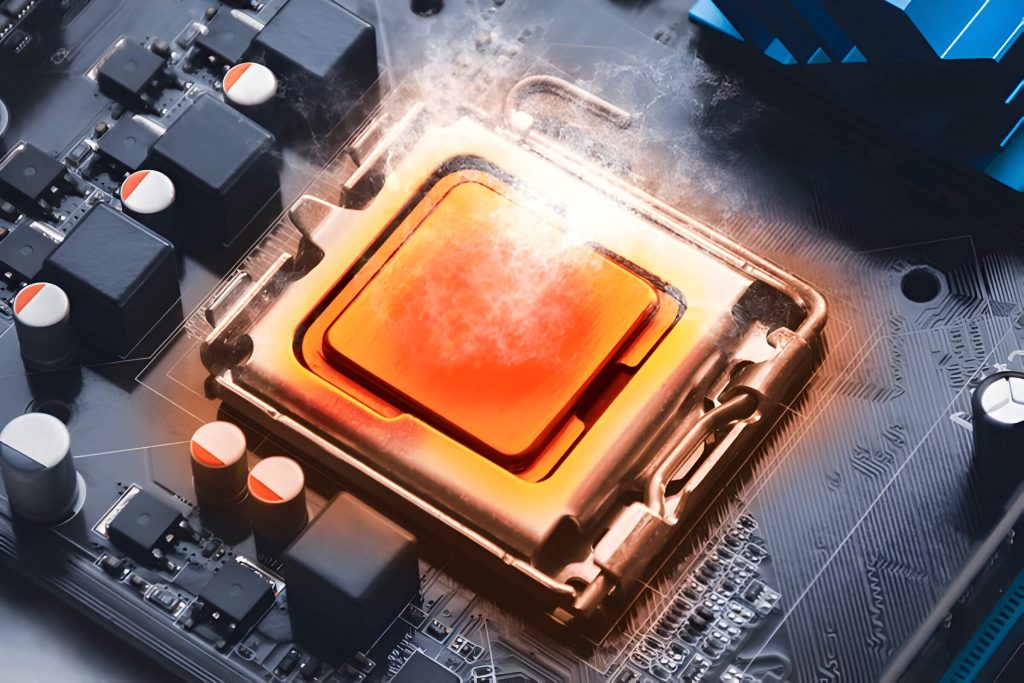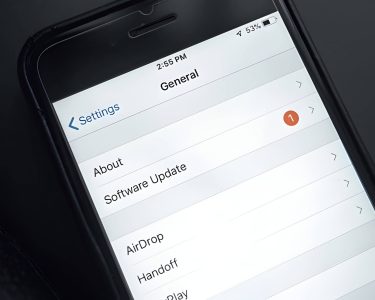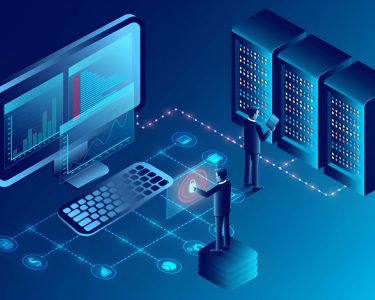Sudden computer slowdowns can be a frustrating experience for any user. This comprehensive guide delves into the common culprits behind unexpected performance dips and offers practical solutions to restore your system’s speed. From insufficient storage space to hidden malware, outdated drivers to hardware issues, we explore key factors that can impact your computer’s performance. By understanding these potential causes and implementing the suggested fixes, you can take proactive steps to maintain your computer’s efficiency and avoid disruptive slowdowns.
1. Insufficient Storage Space
One of the most common culprits behind a sudden slowdown in computer performance is insufficient storage space. When your hard drive is nearing capacity, it can significantly impact your system’s speed and overall functionality. As your computer struggles to find available space for temporary files and system processes, it may begin to lag or freeze unexpectedly.
To address this issue, start by performing a disk cleanup to remove unnecessary files and free up valuable storage. This can include deleting temporary files, emptying the recycle bin, and uninstalling unused programs. Additionally, consider transferring large files to an external drive or cloud storage to further alleviate the burden on your primary drive.
For a more permanent solution, upgrading from a traditional Hard Disk Drive (HDD) to a Solid State Drive (SSD) can dramatically improve your computer’s speed and responsiveness. SSDs offer faster read and write speeds, allowing your system to access and process data more efficiently. While SSDs typically have less storage capacity than HDDs, their performance benefits often outweigh this limitation for many users.
Regularly monitoring your available disk space and maintaining at least 10-15% free storage can help prevent sudden slowdowns and ensure your computer runs smoothly.
2. Malware and Virus Infections
Malware and virus infections are often overlooked culprits behind sudden computer slowdowns. These malicious programs can infiltrate your system undetected, consuming valuable resources and compromising performance. Viruses, trojans, and other forms of malware may run in the background, slowing down your computer’s processes and potentially stealing sensitive information.
To combat these invisible threats, it’s crucial to maintain up-to-date antivirus software and perform regular system scans. If you suspect a malware infection, run a comprehensive scan using reputable antivirus or anti-malware tools. Many of these programs offer real-time protection, helping to prevent infections before they occur.
In addition to antivirus software, practicing good cybersecurity habits is essential. Avoid clicking on suspicious links or downloading files from untrusted sources. Keep your operating system and all software updated to patch potential vulnerabilities that malware could exploit.
If your computer remains slow even after running antivirus scans, consider using specialized malware removal tools. These can often detect and eliminate more sophisticated threats that standard antivirus programs might miss. Remember, maintaining a malware-free system is crucial not only for optimal performance but also for protecting your personal data and privacy.
3. Too Many Background Processes
When investigating why your computer has suddenly become sluggish, one often overlooked culprit is the abundance of background processes running simultaneously. These hidden resource hogs can significantly impact your system’s performance without you even realizing it.
To identify these processes, open the Task Manager by pressing Ctrl+Shift+Esc. Here, you can view all active programs and their resource usage. Pay close attention to CPU, memory, and disk utilization. Some applications may continue running in the background even after you’ve closed them, consuming valuable resources.
Another area to examine is your list of startup programs. Many applications automatically configure themselves to launch when your computer boots up, gradually slowing down your system over time. To manage these, navigate to the “Startup” tab in Task Manager and disable unnecessary programs.
Process optimization is key to maintaining a responsive computer. Regularly review your running processes and startup items, uninstalling unused programs and disabling unnecessary background services. By doing so, you’ll free up system resources and potentially resolve the sudden slowdown you’ve been experiencing.
Remember, a well-maintained computer with optimized processes can significantly improve your overall user experience and productivity.
4. Outdated or Corrupted Drivers
Outdated or corrupted drivers can significantly impact your computer’s performance, often causing sudden slowdowns that leave users puzzled. Drivers act as essential intermediaries between your computer’s operating system and its hardware components, ensuring smooth communication and optimal functionality.
When drivers become outdated or corrupted, they can lead to various issues:
- Reduced performance: Outdated drivers may not fully utilize your hardware’s capabilities, resulting in slower overall system speed.
- Hardware compatibility problems: Newer software or operating system updates may require updated drivers to function correctly.
- System instability: Corrupted drivers can cause crashes, freezes, or unexpected errors, further slowing down your computer.
- Increased resource consumption: Inefficient drivers may unnecessarily tax your system resources, leading to sluggish performance.
To address this issue, regularly check for driver updates through your computer’s Device Manager or by visiting the hardware manufacturer’s website. Many modern operating systems also offer automatic driver updates, which can help maintain system stability and performance.
Remember, while updating drivers can often resolve performance issues, it’s essential to download them from trusted sources to avoid introducing malware or further complications to your system.
5. Hardware Issues
As computers age, their hardware components can start to show signs of wear and tear, leading to a noticeable decline in performance. If you’re wondering, “Why is my computer so slow all of a sudden?” hardware issues could be the culprit. Over time, components like the CPU, RAM, and hard drive may struggle to keep up with modern software demands.
One common solution is a RAM upgrade. Increasing your computer’s memory can significantly boost its ability to handle multiple tasks simultaneously. However, if CPU performance is lagging, you might need to consider a more substantial upgrade or even a new system altogether.
To identify hardware problems, run hardware diagnostics tools provided by your computer manufacturer or third-party software. These can help pinpoint specific components that may be failing or underperforming.
It’s important to understand that each component has a typical lifespan. Hard drives, for instance, may start to fail after 3-5 years of regular use. SSDs generally last longer but can still degrade over time. Keeping track of your computer’s age and the lifespan of its components can help you anticipate when upgrades or replacements might be necessary to maintain optimal performance.
6. Operating System Problems
Operating system issues can significantly impact your computer’s performance, often leading to sudden slowdowns. Windows, being the most widely used OS, is particularly prone to such problems. Here are some common culprits and solutions:
- Windows Updates: While crucial for security, pending or partially installed updates can slow your system. Ensure all updates are completed and restart your computer.
- System File Corruption: Damaged system files can cause various performance issues. Run the System File Checker (SFC) tool by typing “sfc /scannow” in the Command Prompt to identify and repair corrupted files.
- Fragmented Hard Drive: Over time, files become fragmented, slowing down access times. Use Windows’ built-in Disk Defragmenter tool to optimize your hard drive’s performance.
- Registry Issues: The Windows Registry can accumulate errors and obsolete entries. While caution is advised, using a reputable registry cleaner can help streamline your system.
- Background Processes: Too many programs running in the background can bog down your system. Review your startup programs and disable unnecessary ones.
- Malware: Viruses and other malicious software can severely impact performance. Perform a full system scan with your antivirus software.
By addressing these common operating system problems, you can often resolve the issue of “Why is my computer so slow all of a sudden?” and restore your Windows PC to its optimal performance.
7. Overheating
 Overheating is often an overlooked culprit when it comes to sudden computer slowdowns. When your CPU’s temperature rises beyond optimal levels, it triggers thermal throttling, a protective mechanism that reduces processing speed to prevent damage. This can significantly impact your computer’s performance, making it feel sluggish and unresponsive.
Overheating is often an overlooked culprit when it comes to sudden computer slowdowns. When your CPU’s temperature rises beyond optimal levels, it triggers thermal throttling, a protective mechanism that reduces processing speed to prevent damage. This can significantly impact your computer’s performance, making it feel sluggish and unresponsive.
Several factors can contribute to overheating:
- Dust accumulation: Over time, dust can clog your computer’s cooling system, reducing its efficiency.
- Failing fans: Worn-out or malfunctioning fans can’t effectively dissipate heat.
- Degraded thermal paste: The thermal compound between the CPU and heatsink can dry out, reducing heat transfer.
- Inadequate ventilation: Blocking air vents or using the computer in a hot environment can lead to heat buildup.
To address overheating issues:
- Clean your computer’s internals regularly, removing dust with compressed air.
- Check and replace faulty fans.
- Reapply thermal paste if necessary.
- Ensure proper ventilation around your computer.
Monitoring your CPU temperature and maintaining your cooling system can prevent overheating-related slowdowns, keeping your computer running smoothly and efficiently.
DIY Solutions Quick Fixes to Speed Up Your Slow Computer
Revitalizing a sluggish computer doesn’t always require professional intervention or expensive upgrades. Several DIY solutions can significantly improve your system’s performance. Start by running a comprehensive cleanup using built-in tools like Disk Cleanup and Disk Defragmenter to remove unnecessary files and optimize data storage. Uninstall unused programs and disable startup applications to free up system resources. Updating your operating system and drivers can also resolve performance issues and enhance compatibility.
For a quick speed boost, consider adjusting your computer’s visual effects. Disabling animations and transitional effects can noticeably improve responsiveness, especially on older machines. Clearing your browser cache and limiting the number of open tabs can also enhance your online experience.
If you’re comfortable with more advanced techniques, consider using third-party optimization tools to fine-tune your system settings. However, always research these tools thoroughly and download from reputable sources to avoid potential security risks.
Remember, regular maintenance is key to keeping your computer running smoothly. Implementing these performance tweaks and cleanup practices can extend your device’s lifespan and postpone the need for costly hardware upgrades.
When to Seek Professional Help (Recognizing the Limits of DIY Solutions)
While many computer issues can be resolved through DIY methods, there comes a point when professional help becomes necessary. Recognizing the limits of your own expertise is crucial to prevent further damage and ensure optimal performance of your device.
Professional computer repair services offer specialized knowledge and tools that go beyond basic troubleshooting. If you’ve exhausted common solutions and the problem persists, it’s time to consider IT support. Experts can perform in-depth professional diagnostics to identify complex issues that may not be apparent to the average user.
Hardware replacement is another area where professional assistance is often required. Attempting to replace components without proper knowledge can lead to costly mistakes or even render your device inoperable. Trained technicians can accurately identify faulty hardware and perform replacements with precision.
Moreover, professional IT support can provide valuable insights into preventive maintenance and security measures, helping you avoid future issues and protect your data. When faced with persistent problems, data loss risks, or the need for hardware upgrades, seeking professional help is the most prudent course of action.






